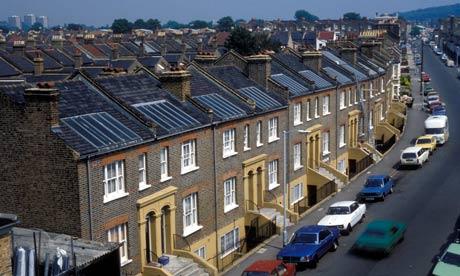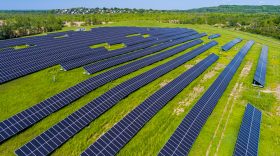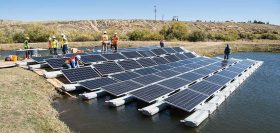What can the US learn from Britain’s Solar About-Face?
In the election of May of this year, England’s Conservative party ( whose members are known commonly in the media as “Tories”) won a surprise victory and secured enough seats in parliament to form a majority government. Despite the lack of support for renewables in the conservative platform, solar advocates attempted to remain optimistic. Leonie Greene of the Solar Trade Association was quoted shortly after the election as stating that, “I am confident support for solar will remain, the question is whether they will treat it as a sideshow to old centralized technologies or if they will recognise the technology tide is now changing dramatically internationally and that the UK urgently needs to retain and strengthen its position in the booming global solar market.”

Despite the cautious optimism of Greene and other UK solar industry representatives, the Tories set about immediately pulling the plug on a wide range of renewable energy programs, starting with axing incentives for on shore wind development. Before long, they announced plans to cut programs for energy efficient homes, energy efficient cars and biomass, as well as particularly severe cuts to several extremely successful solar programs, including the extremely effective feed-in tariff. This means that developers, looking to install larger “solar farms” will probably be the hardest hit. According to the Guardian: “Householders who were planning to install solar panels next year could also find the financial incentives to do so no longer exist…The government said it wants to remove the renewables obligation payments for those installing large schemes that aim to deliver between 1 and 5 megawatts from April 2016. This will likely lead to a halt in such projects as investors reassess their liability.”
While claiming to cut solar subsidies in order reduce the government’s budget, new incentives are being announced for new nuclear production, as well as a tidal energy project that would produce less energy and cost more money than supporting current solar development.

Meanwhile, here in the US, we are hearing similar rumblings from republican legislators and the utility companies that donate heavily to their campaign coffers. The fossil fuel industry backed American Legislative Exchange Council (ALEC) has lead the push by drafting model legislation that is being used to throw up roadblocks to rooftop solar installations in states across the country. The more of a threat solar poses to the status quo and the government sanctioned monopoly utility industry, the more hyperbolic the utilities rhetoric becomes. The latest focal point of their attack is net metering, which allows solar producers to receive full retail credit for the energy use that they offset with their own solar investment. ALEC has painted these individuals, who have invested their own money into equipment that reduces the utility company’s peak load as “freeriders” on the system.
As solar continues its meteoric growth worldwide, its threat to the utility industries “business as usual” model is looming large. By using political influence, the utility industry in the UK is doing all it can to reduce the average English homeowner’s ability to achieve energy independence. Here in the US, solar growth is far behind where it is in the UK and Europe, but the American utility lobby is taking its cues from the Tories in the UK. They will do everything they can to nip rooftop solar in the bud before it grows as it has in Europe. If solar is to play a significant role in the US, they want to make sure that the utility industry maintains complete control over its development.
——–
About the Author: Rich Dana serves as Director of Microenterprise Development for the Sustainable Living Department at Maharishi University of Management. He works with students to develop ideas and implement new projects. He is a serial entrepreneur, a freelance writer and partner in Plan B Consulting. He has served as an energy specialist at the National Center for Appropriate Technology and President of the Iowa Renewable Energy Association. At 53, he still likes to climb on roofs and install solar equipment.





